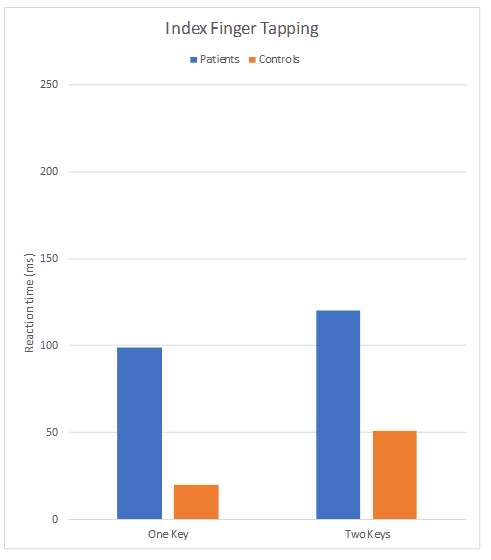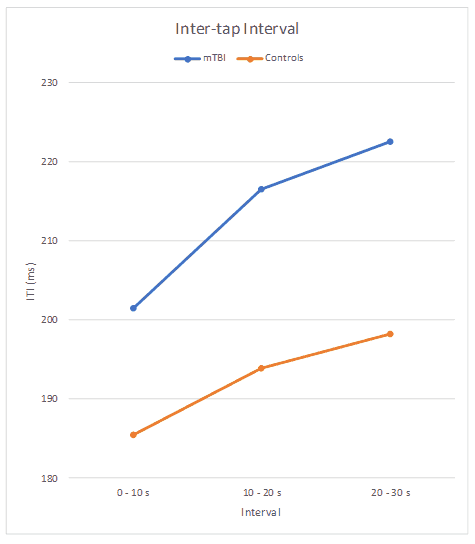The constituents of basic motor capabilities (speed, accuracy, and rhythm) can be assessed by the Tapping Speed Active task of Apple’s ResearchKit Framework. The user is presented with two targets on the touchscreen and is required to tap the targets, alternating between the two rapidly. This activity uses the multi-touch display, and the accelerometer sensor of the iPhone to collect data via touch activity.
Tapping Speed task instructions
- Rest your device on a flat surface.
- Start the task.
- Place two fingers of the same hand over the two buttons that appear on the screen.
- Using the two fingers, take turns to tap the buttons as fast as you can, alternatingly, for 20 seconds.
- Task completed.



